GST gets green signal, set to be an industry game-changer
The automobile and auto component manufacturing industries are among the many sectors which will benefit from the Goods and Services Tax, which does away with a multitude of taxes.
The Goods and Services Tax Bill (GST) Bill has, after many years of false starts, has been passed by the Rajya Sabha, thereby weaving India into one common economic unit, just like the European Union. The target date for the rollout of GST is April 1, 2017.
It is a historic step which unifies India into a single market and is aimed at doing away with a multitude of taxes imposed by the Central government and States on the movement of goods and services in the country. As a transaction-based tax, GST will impact not only the tax function, but would also lead to a significant transformation in the way businesses are run, cutting across various business functions such as tax, finance, supply chain, IT, and sales and marketing among others.
"Once GST is rolled out, doing business in India will be easier," said finance minister Arun Jaitley in a tweet. While an official statement from apex industry bodies SIAM and ACMA is expected, ACMA said in a tweet: "Glad road cleared for GST. Hope implementation is fast with minimal/no disruptions."
The automobile and auto component industries will be among the many beneficiaries of GST which will help reduce logistics costs by removing trade hurdles, paving the way for more competitive manufacturing.
The execution of GST will remove the effect of multiplicity of taxes on the cost of goods and services. At present, vehicle manufacturers are located in different states in India. It is estimated in the passenger car industry that around 80 percent of these cars are sold to dealers in states outside the state in which they are manufactured. Typically, a 2 percent Central Sales Tax (CST) is charged on the cost of the car and the same is not creditable. However, with GST, the two percent CST will be made fully creditable. Moreover, with the effective tax rate dropping to around 18 percent from up to 27 percent for some segments currently, car prices will reduce, thereby giving a fillip to demand for automobiles. According to some estimates, the on-road price of vehicles could go down by up to 8 percent.
Further clarity of the impact on the auto sector will emerge once the RNR (revenue neutral rate) is decided upon. The revenue neutral rate is the rate at which there will be no loss in aggregate central and state tax revenue. The same will be decided by a GST council comprising Centre and state representatives.
INDIAN INDUSTRY COMMENTS ON THE GST BILL
RC Bhargava, chairman, Maruti Suzuki India
“We all wanted the GST Bill and finally it is coming. In terms of advantages, it creates a single market in India. Today the market is broken up with states having their own taxes and own laws so they function as state markets and are separate islands. Now India can go back to being a single market.
In terms of cars becoming less costly, the GST rates are not yet known so it is too early to say. GST will not lower costs of manufacturing much but it will make logistics better.”
Vishnu Mathur, director general, Society of Indian Automobile Manufacturers (SIAM)
“It is very good news for the industry. We have been hoping that GST would be implemented. It is certainly going to reduce our overall cost structure. Finally, we are going to become a one- single market. So it is definitely going to give a boost to the economy, maybe by 1 or 1.5 percent growth to the overall GDP.
I think the automotive sector will be one of the most positively impacted sectors. At present, we have multiple rates of excise duty. With the GST coming in, we are hoping we do not see more than two rates. So that will be also a very positive development as far as our industry is concerned, which we believe is very, very highly taxed.
While we haven't seen the GST rate yet, whatever comes will certainly be lesser than cumulatively what it is today.”
Arvind Balaji, president, Automotive Component Manufacturers of India (ACMA)
“We are delighted that the GST bill has been passed by the Rajya Sabha. This will pave the way for the creation of ‘One India market’ by ending the multiplicity of taxes, which often leads to a cascading effect. It will also give a fillip to the Indian economy and the government’s agenda of ‘ease of doing business’. We look forward to a faster implementation of GST.”
Sugato Sen, deputy director general of SIAM
“The passing of the GST Bill by the Rajya Sabha is very welcome and we hope that it is quickly passed by the states and implemented in April 2017. The way the automobile industry is structured with multiple levels of manufacturing, including raw materials, Tier IVs, Tier IIIs, Tier IIs and Tier Is and then OEMs at each level of transaction, there are numerous taxes and duties that get embedded into the cost structure. So manufacturing becomes inefficient in a sense that you are carrying duties that you are not supposed to carry. Now with GST, the entire transaction will clear up and make automobile manufacturing much more efficient and competitive.
“In terms of impact, direct taxes will get reduced and for more we have to wait for the GST rates to be announced. We have been talking to various government offices and they say there are different revenue neutral rates which range from 16 percent to 18 percent and we hope that the final GST rate will range between 16-18 percent.
There is no guarantee that cars will become cheaper; direct taxes may come down but other taxes may go up like service tax. So we have been told that there will be a marginal impact on car prices.”
Sumit Sawhney, Country CEO and Managing Director, Renault India Operations
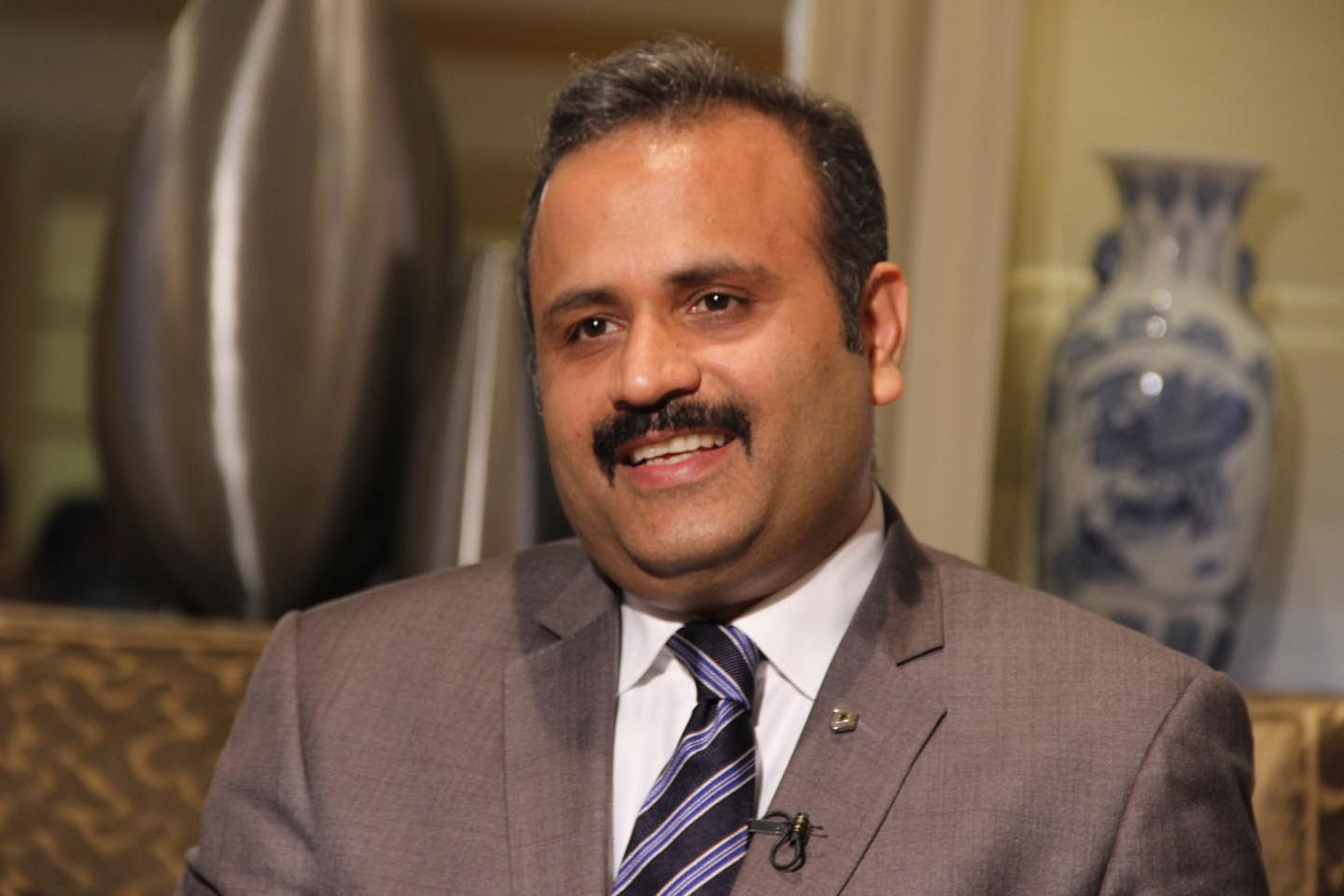
“GST is the greatest tax reform ever attempted in India. The passing of the much-awaited GST Bill signals a paradigm shift with a unified tax structure which will catalyse economic growth. GST will positively impact several sectors, including the automobile industry, by minimising and simplifying the taxation burden. GST is expected to drive overall consumer demand since the cost for the logistics and supply chain inventory will be curtailed by almost 30-40 percent, the benefits of which are expected to be passed on to the consumers. As next steps, the focus will be on establishing a robust infrastructure and harmonizing the licensing and environmental regulations across the states.
Surely a big step in the direction of ease of doing business, GST also reflects the spirit of positive governance to foster collaboration that best suits the economy, businesses and the consumers alike.”
Sohinder Gill, Director – Corporate Affairs, Society of Manufacturers of Electric Vehicles
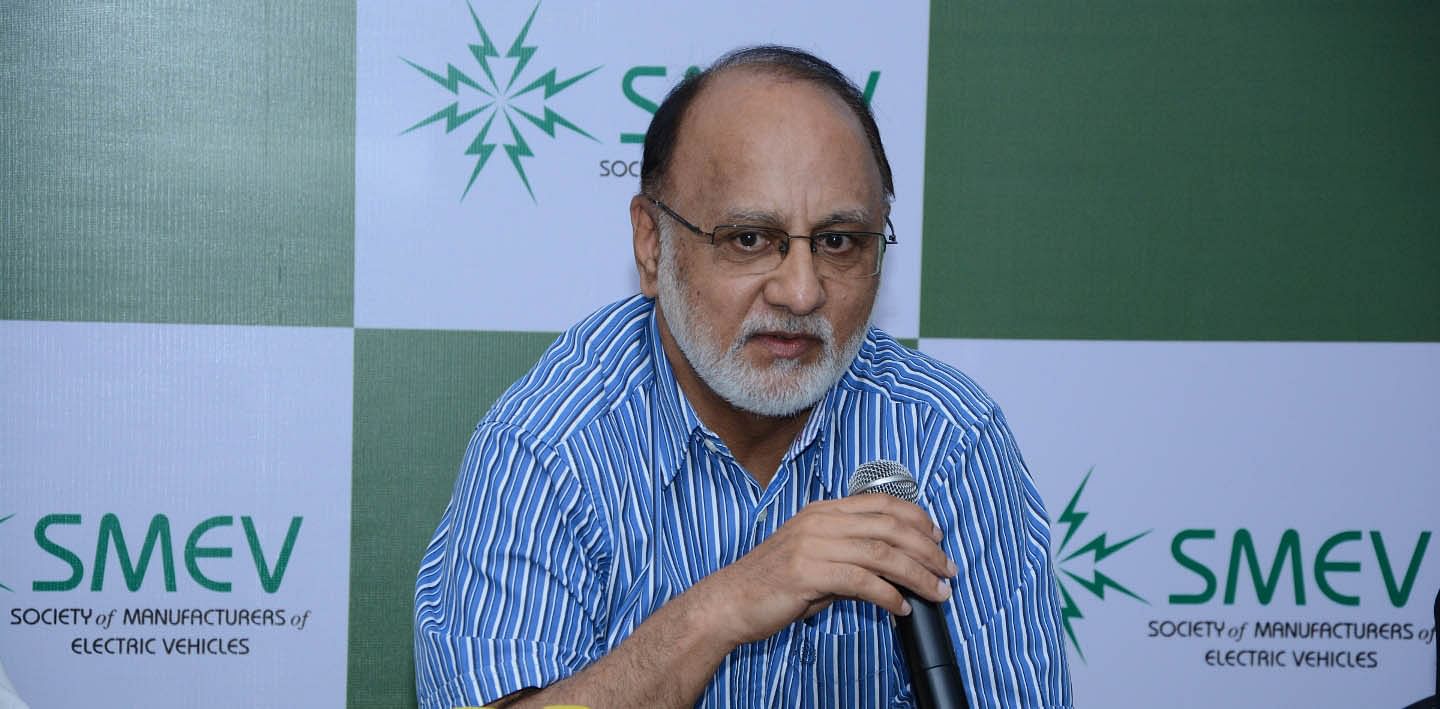
“It’s a major step taken by the government as it intends to turn India into one common market which will lead to ease of doing business. Currently, the tax levied by state governments on green vehicles vary between 0 to 5%, except three states – Uttar Pradesh, Punjab and Bihar – which charge more than 14%. Road tax is almost nil in the majority of the states. If we consider the average VAT levied on green vehicles across India, it comes up to approximately 4%. Hence, we hope as the Bill progresses, the government should keep it either at par or at a lower rate than the current tax structure, for a certain period. If the government manages to do it, it will definitely revive the electric vehicle industry in India; otherwise, it will nullify the FAME incentive being passed on to the customers under NEMMP for inducting more and more EVS on Indian roads.
“In addition to the tax rationalisation and work simplification that everyone is talking about, we feel that GST will do its bit in impacting the environment in a positive way. The miles-long queue of slow-moving trucks at multiple toll barriers and checkpoints across Indian highways and consequent traffic jams lead to a significant rise in pollution. At many places, trucks detour/divert to travel much longer to avoid the green tax/ entry taxes. This indirect benefit of GST of reducing crude oil consumption and cutting down emissions is in line with the NEMMP objective of inducting six million EVs on Indian roads in six years, making India less reliant on crude imports and improving the air quality in our cities.”
Yadvinder Singh Guleria, Senior VP (Sales & Marketing), Honda Motorcycle & Scooter India

"GST is definitely one of the most important tax reforms in the history of India which was closely tracked by each and every one this monsoon session of Parliament. The GST rate and other terms of the tax are yet to be finalised. However, once implemented, we expect the effective tax rate to come down (from the current 28-35% taxation rate as the two-wheeler sector faces as many as 13 different types of taxations).
The new simplified and uniform tax structure will reduce the cascading effect of tax-over-tax, provide a 360deg ease of doing business for the complete automobile ecosystem, be it suppliers, manufacturers, dealers and most importantly customers who will get the benefit."
Roy Kurian, vice-president (Sales & Marketing), Yamaha Motor India Sales

“Introduction of GST is a significant step to promote trade and industries, especially for the manufacturing sector. The impact on the automotive sector can only be gauged after the RNR (revenue neutral rate) is announced. However, it is certain that the taxation system will get simplified and more transparent. The overall rate is expected to come down benefitting manufacturers which will eventually benefit the end consumer.”
Ashwani Aggarwal, president, Brose India
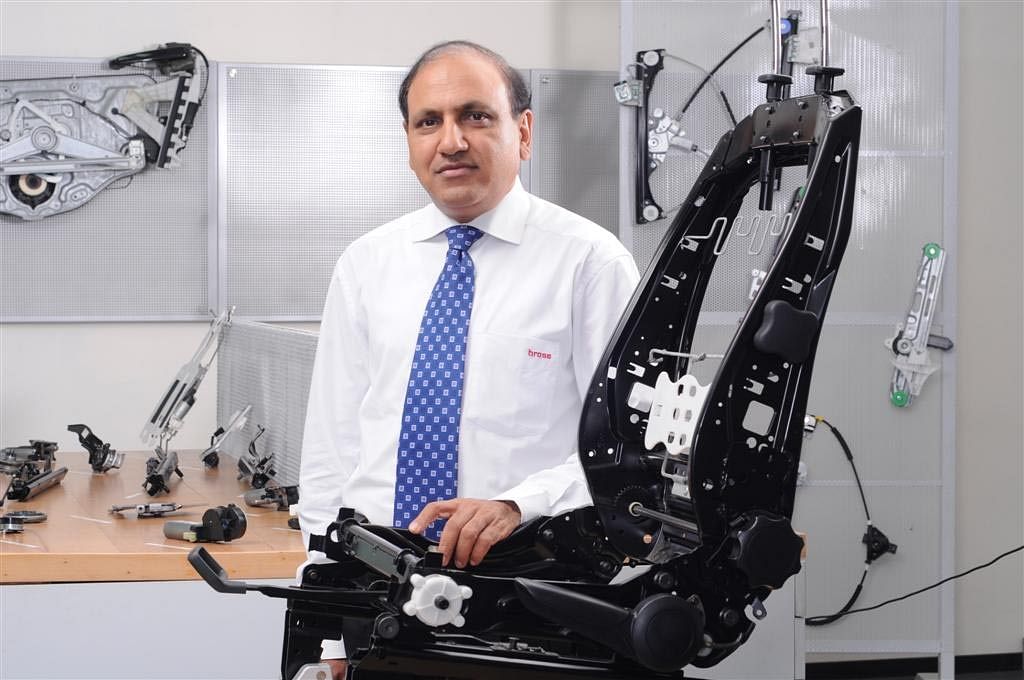
"The clearance of the GST Bill is a historic landmark for India. This development will support the automotive industry as vehicle prices are expected to come down. As a result, market demand is also expected to pick up well. However, when we look at the consumers’ point of view with respect to the payable service taxes, it might hurt temporarily. For example, we pay a service tax of close to 15 percent which includes various cess (Swachh Bharat). This is likely to grow to 18 percent or so. We expect that the current GST cap should push the rates between 18-20 percent at the most. If it goes beyond that, it might lead to a mild inflation in the economy."
Rohit Saboo, president & CEO, National Engineering Industries (CK Birla Group)
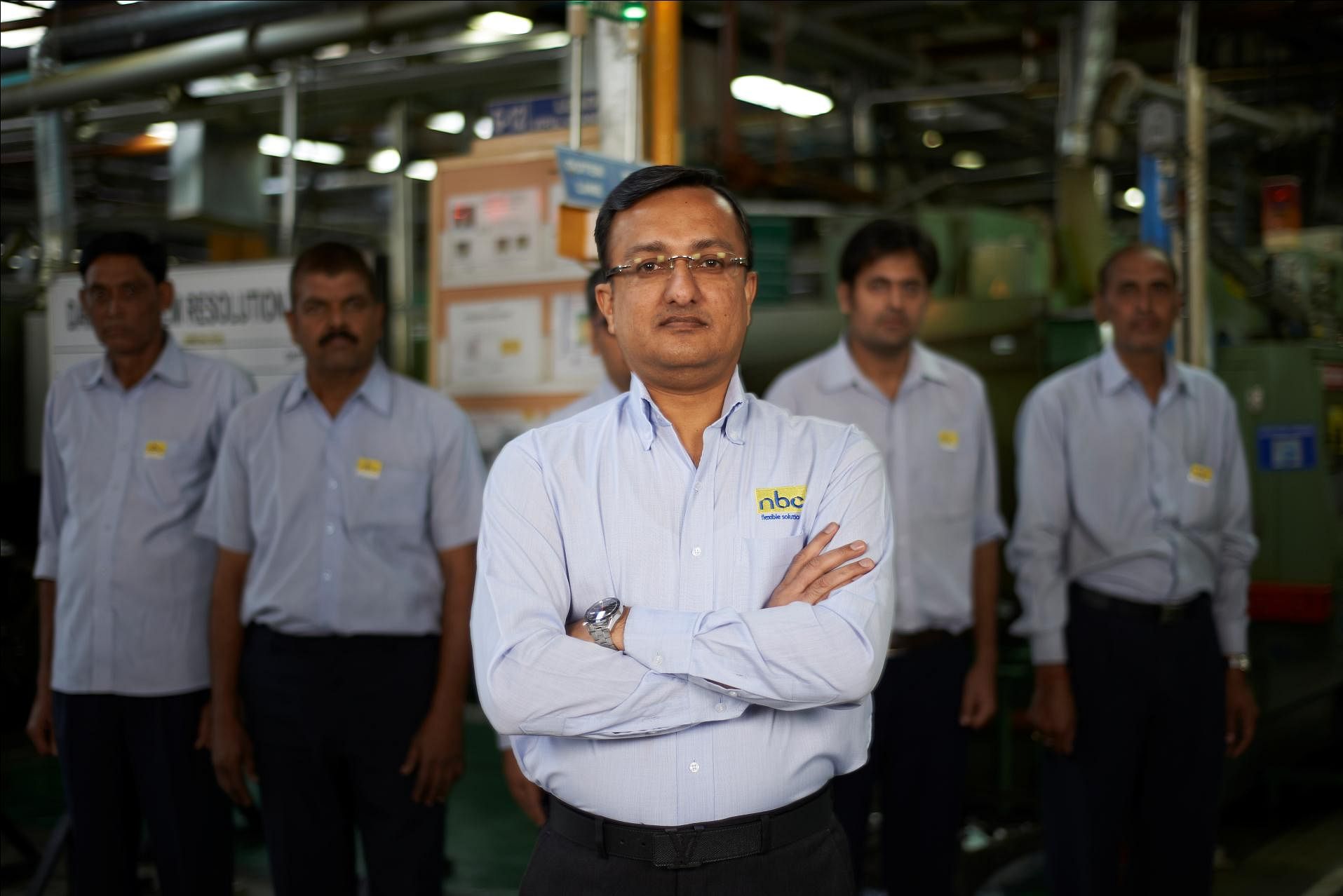
“GST is a welcome initiative and it is definitely going to bring positivity in the automobile and auto components industry. With this significant step, we can expect consolidation of manufacturing facilities and flexibility in the distribution. Manufacturers can now focus on production without facing the complexity of tax compliances. Swift and error-free implementation will be the key to its success."
Vipin Sondhi, MD and CEO, JCB India
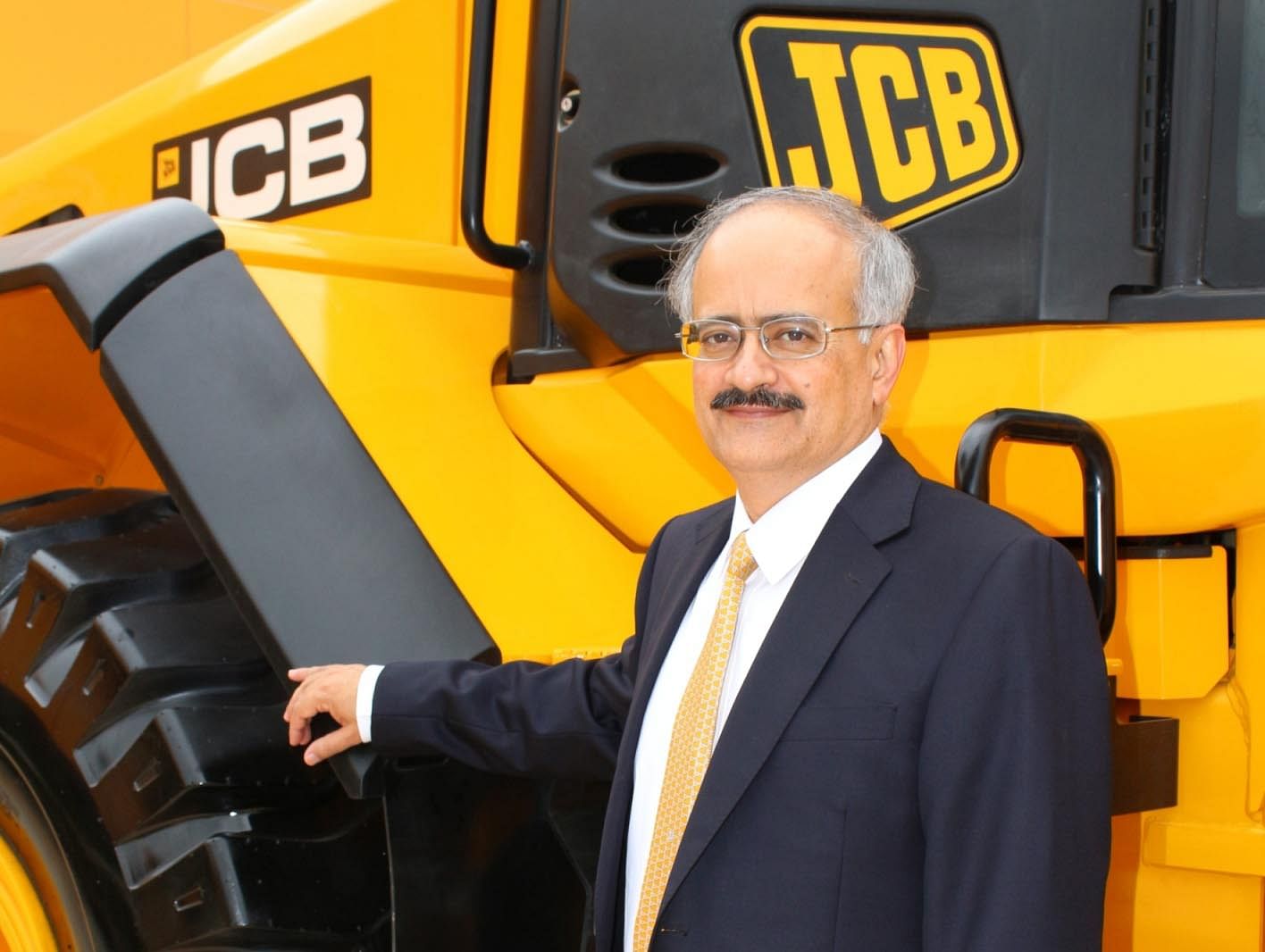
"The passage of GST is a landmark reform and a critical milestone towards free trade within India. It will also give a massive push to Make in India especially MSMEs. The ease and cost of doing business will receive a fillip and the width of the tax base will be enhanced."
Sudhir Gurtoo, MD, Voith Industrial Services India

"India has been waiting for this development for decades. It could be understood as one of the biggest financial reforms in India since our independence. Just like how Form 26AS impacted the individual taxation practices by bringing absolute transparency in the system, the GST Bill will have a similar impact in the goods and services taxation world. It is a game- changing reform which will wipe out tax hideouts, reduce the black money in circulation and will bring transparency in the system from day one of its implementation. The one-country, one-tax norm will bring substantial changes in an effort to clean up the corrupt practices across India."
"Since this will cut down on the double taxation processes, product costs are expected to come down including that of passenger cars and two-wheelers across the automotive industry. However, in terms of the service taxes that we currently pay, I believe we may see a marginal rise. Nevertheless, in 2-4 years’ time, the rates will stabilise and actual numbers will emerge. Voith's management in Germany is already discussing the impact of the GST Bill. Multinational companies will have a positive outlook at this development."
Amit Kavrie, executive director, Supreme Treon
“We shall see a spike in automobile sales as their prices of automobiles are expected to reduce substantially with the introduction of GST. Currently, excise duty, VAT/ CST and cascading effect of other local taxes and levies add to the cost of the finished product. The increase in sale of automobiles will help auto ancillaries by increase in their sale and better utilisation of production facilities.
The GST impact on manufacturers of automobile parts will be higher for those who have one or two manufacturing locations in India and CST impacts their cost to the OEMs. Also, the benefit will be much higher for manufacturers who are dependent on traders/ importers for supply of material and excise duty becomes part of their cost of production.
For Supreme Treon, the impact of GST is going to be much lower as we have our manufacturing locations closer to all our customers (OEMs). There is almost nil to very small inter-state tax impact.
In addition, we are integrated backwards to a very large extent for manufacture of raw materials for automobile parts. We have tied up with large fibre and other raw material manufacturers in India and overseas directly and we get full benefit of all the taxes for which credit can be availed. These benefits are already getting passed onto the OEMs by the way of lower cost of products as compared to our competitors."
Anand Sundaresan, vice-chairman & MD, Schwing Stetter India
"We are extremely delighted that the long-awaited GST bill is passed in the Rajya Sabha. We are sure that this will improve our efficiency, reduce unnecessary administrative efforts, and could also increase profitability. I would like to congratulate and thank the government on behalf of our company and on behalf of our Association, Indian Construction Equipment Manufacturers Association, (ICEMA), for getting this bill passed."
Harpreet Singh Malhotra, MD, Tiger Logistics (India)
“The GST Bill is indeed a great step and will be a game-changing initiative for the Indian trade and logistics sector. The logistics and freight sector, which is extremely unorganised right now, will benefit a lot through standardised taxation, making the country’s manufacturing and warehousing competitive by cutting elevated logistics and services costs. Additionally, in India more than 50 percent of time is consumed in transportation of goods because of different taxes and heterogeneous policies at respective state levels. GST will simplify this process and will bring uniformity in overall taxation and trade policies for the infrastructure and logistics sector. It will open new avenues for the logistics industry. Investment can be planned for the long term now.”
A K Rastogi, GM (Finance), Nippon Audiotronix
"GST will be positive for the automotive sector primarily because of the removal of the cascading effect of tax on the cost of goods and services. Currently, most car manufacturers are located in few of the states in India. When they sell their cars to other states, they charge 2% CST, which is currently included in the cost of the car as it is not creditable. However, in the GST regime, credit will be available.
Currently, MRP-based payment of excise is applicable on accessories leading to a higher landed cost. In the GST regime, it will go away.
Another aspect is the easy credit mechanism so that all taxes on inputs are set off against the output liability of GST. Input may be capital goods or input service; credit of all is available for set off.
Since all indirect taxes will be subsumed, companies would need to bring in significant change in processes, training teams and developing IT systems for being GST compliant. Organisations have to upgrade their technology infrastructure, as most of the processes are automated in GST in respect of tax credit, redesigning of invoices and other procedural aspects.
It’s a wrong perception that the prices are likely to rise, in fact prices will be reduced which will ultimately benefit the end customer."
FAQs
What is GST? How does it work?
GST is one indirect tax for the whole nation, which will make India one unified common market. GST is a single tax on the supply of goods and services, right from the manufacturer to the consumer.
Credits of input taxes paid at each stage will be available in the subsequent stage of value addition, which makes GST essentially a tax only on value addition at each stage. The final consumer will thus bear only the GST charged by the last dealer in the supply chain, with set-off benefits at all the previous stages.
What are the benefits of GST?
The benefits of GST can be summarised as under:
For business and industry
Easy compliance: A robust and comprehensive IT system would be the foundation of the GST regime in India. Therefore, all taxpayer services such as registrations, returns and payments would be available to the taxpayers online, which would make compliance easy and transparent. Uniformity of tax rates and structures: GST will ensure that indirect tax rates and structures are common across the country, thereby increasing certainty and the ease of doing business. In other words, GST would make doing business in the country tax neutral, irrespective of the choice of place of doing business.
Removal of cascading: A system of seamless tax-credits throughout the value-chain, and across boundaries of States, would ensure that there is minimal cascading of taxes. This would reduce hidden costs of doing business.
Improved competitiveness: Reduction in transaction costs of doing business would eventually lead to an improved competitiveness for the trade and industry.
Gain for manufacturers and exporters: The subsuming of major Central and State taxes in GST, complete and comprehensive set-off of input goods and services and phasing out of Central Sales Tax (CST) would reduce the cost of locally manufactured goods and services. This will increase the competitiveness of Indian goods and services in the international market and give a boost to Indian exports. The uniformity in tax rates and procedures across the country will also go a long way in reducing the compliance cost.
For Central and State Governments
Simple and easy to administer: Multiple indirect taxes at the Central and State levels are being replaced by GST. Backed with a robust end-to-end IT system, GST would be simpler and easier to administer than all other indirect taxes of the Centre and State levied so far.
Better controls on leakage: GST will result in better tax compliance due to a robust IT infrastructure. Due to the seamless transfer of input tax credit from one stage to another in the chain of value addition, there is an inbuilt mechanism in the design of GST that would incentivize tax compliance by traders.
Higher revenue efficiency: GST is expected to decrease the cost of collection of tax revenues of the Government, and will, therefore, lead to higher revenue efficiency.
For the consumer
Single and transparent tax proportionate to the value of goods and services: Due to multiple indirect taxes being levied by the Centre and State, with incomplete or no input tax credits available at progressive stages of value addition, the cost of most goods and services in the country today are laden with many hidden taxes. Under GST, there would be only one tax from the manufacturer to the consumer, leading to the transparency of taxes paid to the final consumer.
Relief in overall tax burden: Because of efficiency gains and prevention of leakages, the overall tax burden on most commodities will come down, which will benefit consumers.
Which taxes at the Centre and State level are being subsumed into GST?
At the Central level, Central Excise Duty, Additional Excise Duty, Service Tax, Additional Customs Duty commonly known as Countervailing Duty, and Special Additional Duty of Customs are being subsumed.
At the State level, Subsuming of State Value Added Tax/Sales Tax, Entertainment Tax (other than the tax levied by the local bodies), Central Sales Tax (levied by the Centre and collected by the States), Octroi and Entry tax, and Purchase Tax, Luxury tax, and Taxes on lottery, betting and gambling will be subsumed.
How would GST be administered in India?
There will be two components of GST – Central GST (CGST) and State GST (SGST). Both Centre and States will simultaneously levy GST across the value chain. The tax will be levied on every supply of goods and services. The Centre would levy and collect Central Goods and Services Tax (CGST), and States would levy and collect the State Goods and Services Tax (SGST) on all transactions within a State.
The input tax credit of CGST would be available for discharging the CGST liability on the output at each stage. Similarly, the credit of SGST paid on inputs would be allowed for paying the SGST on output. No cross-utilisation of credit would be permitted.
How will imports be taxed under GST?
The Additional Duty of Excise or CVD and the Special Additional Duty or SAD presently being levied on imports will be subsumed under GST. As per explanation to clause (1) of article 269A of the Constitution, IGST will be levied on all imports into the territory of India. Unlike in the present regime, the States where imported goods are consumed will now gain their share from this IGST paid on imported goods.
RELATED ARTICLES
Bajaj Auto launches new Chetak 3503 at Rs 110,000
The Chetak 3503, with a claimed range of 155km, 63kph top speed and a slower charging time than its 35 Series siblings, ...
Hyundai walks the eco talk with biogas plant, material recovery plant in Gurugram
Operational since October 2022, the facility targets sustainable waste management in Gurugram by undertaking scientific ...
Rajiv Bajaj reappointed MD and CEO of Bajaj Auto for five-year term
Bajaj Auto’s Board of Directors has approved the re-appointment of Rajiv Bajaj as the company’s MD and CEO for another f...






 By Autocar Professional Bureau
By Autocar Professional Bureau
 04 Aug 2016
04 Aug 2016
 8020 Views
8020 Views


















